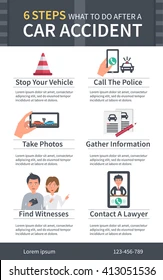Change Your Understanding Of Test Preparation As We Delve Into The Thorough Methods Criminal Justice Lawyers Employ-- What Important Actions Do They Take?
Change Your Understanding Of Test Preparation As We Delve Into The Thorough Methods Criminal Justice Lawyers Employ-- What Important Actions Do They Take?
Blog Article
Post Produced By-Godfrey Dickerson
When you think of the prep work that goes into a criminal trial, it's easy to forget the comprehensive behind-the-scenes job lawyers engage in. You'll find that they start by evaluating the instance information and gathering proof, but it doesn't quit there. They craft techniques based on that's commanding the instance and who's remaining on the court. As they navigate the complexities of each test, they likewise have to anticipate the prosecution's actions. So, what details steps do they take to make sure every little thing aligns completely come trial day?
Case Analysis
When preparing for a test, an extensive instance assessment is crucial for any criminal justice lawyer. You'll begin by analyzing the realities of your case, which establishes the foundation for your approach. Understanding the timeline of events, determining key players, and acknowledging prospective weaknesses in the prosecution's argument will certainly assist you build a solid approach.
Next, you'll examine any kind of existing legal precedents that can affect your case. Acquainting on your own with similar cases can offer valuable understandings right into how courts may analyze the law. This knowledge allows you to prepare for challenges and resolve them proactively.
Additionally, you'll intend to talk to your client to gather their viewpoint and ensure their narrative lines up with the evidence. Reliable interaction also aids develop trust, which is crucial for a solid attorney-client relationship.
Lastly, take into consideration the effects of numerous end results. This analysis not only prepares you for test yet likewise allows you to recommend your customer on possible plea deals or different resolutions.
Proof Collection
After assessing the case, the next action involves event proof that sustains your client's defense. This procedure is crucial, as the toughness of your instance frequently hinges on the high quality and significance of the proof you collect.
You'll start by recognizing possible resources of evidence, which might include witness statements, cops records, surveillance footage, and forensic data.
As soon as you've identified these sources, you'll need to obtain them legally and morally. This might mean declaring ask for papers, interviewing witnesses, and collaborating with experts who can evaluate physical proof.
Be detailed in your documentation; every item of proof should be cataloged diligently to ensure you can reference it conveniently throughout trial.
It's also necessary to assess the evidence for its admissibility. Some items could be engaging but can face obstacles in court due to lawful guidelines. You'll wish to anticipate any type of objections from the prosecution and prepare counterarguments.
Lastly, keep your client educated throughout this process. Transparency constructs trust fund and helps them understand just how each piece of evidence contributes to their protection approach.
This joint technique lays the structure for a solid instance as you move closer to test.
Trial Approach Development
Developing a test method is important for successfully presenting your case in court. You'll intend to begin by examining the proof collected and recognizing essential themes that sustain your customer's placement. Consider just how to offer the realities in an engaging narrative that reverberates with the court.
Next off, consider your audience. You require to tailor your method based on the judge and jury's histories, ideas, and values. This understanding can guide how you mount your debates and select which evidence to highlight.
It's additionally important to expect the prosecution's method. Identify potential weak points in your instance and establish counterarguments to resolve them proactively. Think about what concerns jurors might have and be prepared with clear, succinct actions.
Once you've developed your core arguments, technique delivering them confidently. Simulated trials can be helpful for fine-tuning your discussion design and gauging the effectiveness of your technique.
Finally, continue to be adaptable throughout the trial. Be ready to adjust your method as brand-new evidence or growths arise, ensuring you remain focused on attaining the best outcome for your client.
Conclusion
In preparing for trial, you need to remain arranged and proactive. By thoroughly examining the case, gathering strong evidence, and crafting a tactical method, you'll establish on your own up for success. Bear in mind, versatility is key; prepare to adapt as the test advances. With efficient communication and practice through simulated tests, you'll be fully equipped to counter any type of challenges that occur. Ultimately, visit site can make all the difference in attaining a beneficial result for your customer.
